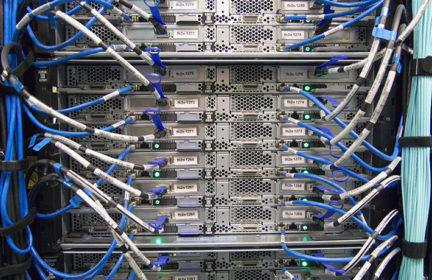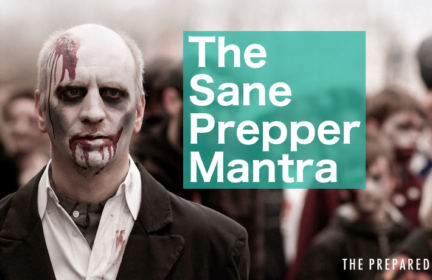Social media and its place in your plan?
With these fires in Oregon, many agencies are referring the public to their social media sites for the most up-to-date information. However, I’m finding it to be counterproductive due to the sheer amount of false information and rumors being spread. Where do you, as a part of being prepared, draw the line between the value of obtaining verified information on current and potential emergency information on social media, versus unfollowing social media entirely and seeking facts from local, regional and national organization sites exclusively? I’m literally ready to walk away from social media, but part of me wonders if I would be giving up a necessary news resource as a part of my being aware of current and evolving situations.
-
Comments (18)
-
Jay ValenciaContributor - September 11, 2020
I don’t blame you for wanting to walk away from social media. It’s a mess these days. But I still get a lot of value out of Twitter but it requires tweaks. For example you can make lists of specific accounts, not necessarily your friends or whatever, that are for specific types of information. Like the emergency management account for your state. Official ones with checkmarks. That filters out a lot of the bs that you get in your main feed. Maybe that helps?
-
North Coast - September 11, 2020
I hadn’t been on Facebook in a long time but rejoined during civil unrest in my city so I could keep tabs on what people in my larger neighborhood were seeing. I joined a specific group just for a several-block radius. That, plus a text group on my immediate block, plus Twitter (where I had a list of local friends from pre-unrest and trusted local media) were really essential to keeping up during a chaotic situation. I haven’t friended anyone outside that single FB group and don’t intend to. It was the most unreliable of the three, because I had no control over who is in the group and lots of people were panicking over every little thing.
-
hikermor - September 12, 2020
I do not include social media in my plans at all.
-
Alisa Felix - September 15, 2020
For me, Facebook is getting harder and harder to deal with. I sometimes wish comments weren’t allowed because it all breaks down into arguing so quickly now. But most people I know across all age groups have accounts there, so it’s convenient?
-
Robert LarsonContributor - September 16, 2020
Social media tends to be very political around this time of year and that turns me off from being on it as much as I would like. In the past however I did just use it for notifications and news updates from reliable and unbiased sources. Like in the situation you described above where your local police department might post things on their twitter page more often than the city website.
I also see social media as a very valuable resource for contacting family members and friends and updating them that you are safe. If you are in the Oregon area and are having to be evacuated, a post to all of your friends can be a great way to let them know you are safe.
In the past I have also used social media as a backup communication source. I was somewhere that there wasn’t cell service but there was WiFi. I was able to text and video call another family member and give them an update.
Social media is also another great place to connect with other preppers. My local ham radio group used Facebook as their main form of communication and I learned very valuable information from them.
Try changing your notification settings and other settings on your social media accounts. I remember that on Facebook I was able to put posts from like the Red Cross and my local police at the top of my feed or get notified just when they posted something. I hope this can help you create a balance.
-
Mike Hill - September 16, 2020
Have you noticed any of your prepper groups on Facebook moving to other places? I was in a really small private one and they asked everyone to move to Slack instead. Not everyone came over but it’s actually been an okay experience so far. Quieter which isn’t a bad thing.
-
Robert LarsonContributor - September 16, 2020
I really thought about trying to get everyone to move to a different platform, but I knew many of the old timer ham radio guys probably wouldn’t try to learn a new communication method. So just for the sake of trying to keep as many people I together as possible, I didn’t move them.
That would be a great challenge though! Try and create a little separate prepper group. I’ll report back if it happens! 🙂
-
John AdamaStaff - September 16, 2020
@Mike: Yes, there is a micro trend among the FB groups for people to leave FB, particularly among crowds that think FB is censoring “conservative” views.
Slack, Discord, and other niche “like Facebook but alt-right friendly” sites are the common ones.
-
Bill Masen - September 27, 2021
I do know that FB have bannned and closed some prepping and gun forums, especially those with a center right political leaning, or challenge conventional thinking on dealing with pandemics.
-
-
Watermelon Samurai - September 16, 2020
Twitter and Facebook could be valuable if danger gets close to your door: the photos and videos that are posted can show what is happening nearby in real time. This would be helpful if you’re trying to decide whether or not it’s time to leave, and which routes are safer than others.
-
G.E. - September 19, 2020
Consider employing “social media minimalism.” — I don’t know if that phrase is orignal or not, but it came to me this morning after my third coffee.
Like living a rationally minimalist lifestyle with your stuff, do the same with your information 1. be deliberate about how you use it; 2. constantly reassess each platform/group/page for its utility and gleefully abandon that which is useless; 3. be vigilant to marketing manipulation
For better and worse, government agencies increasingly incorporate (or rely on) social media to disseminate emergency information. In an unfolding emergency, it might provide valuable real-time information, in addition to radio and TV.
Prior to the emergency, social media creates access points to information you may not have seen otherwise (I found “The Prepared” that way). Finally, social media might have a role in your communications plan in an emergency…”If I can’t text or call, but have the internet, look for a message from me on Instagram.” Or, consider the moral boost loved ones will get by seeing you post that you are alive and well after a major, unexpected event.
Basically, make social media work for you, rather than the otherway around. It feels a little David and Goliath, but done effectively, the benefits outweigh the costs.
-
Mike Hill - September 21, 2020
Smart thinking. And I like the phrase social media minimalism. It’s so easy to go overboard with it.
-
-
brekke - September 21, 2020
Thank you so much for your replies! Lots of great tips here! I like the idea of social media minimalism. I’ve already started the process of “unfollowing” on Facebook and increasing my privacy settings. I think for me a big issue is that family and friends are some of the biggest offenders when it comes to sharing false, fake, and inflammatory information and using Facebook as their primary means of communicating. I’m ready to be done and drop off into anonymity. Just need to communicate to them that if they need/want me to know something, they’ll need to communicate with me directly. And, I’ll need to be a better communicator with them too. Actually use the phone again. Lol. I like the idea of setting up notifications for just the official pages and keeping membership in some key local groups for real-time info in emergency situations.
-
lyn83 - September 21, 2020
I walked away from social media two years ago and it’s honestly one of the best things I’ve ever done for myself.
I don’t have a Twitter account but I still “follow” some people by checking in about once a week to see what they have to say.
As a former librarian– social media itself isn’t the news resources, but the news outlets that people share on the platform.
-
pint of beer - September 22, 2020
i remember when facebook used to be genuinely cool. but that was a long time ago. twitter’s still ok because like you said, you don’t even have to have an account to see most of what’s going on.
-
-
rangerjohn - September 26, 2021
This is as much social media as I do/have.
I don’t do/facebook, twitter, instagram, none of it.
-
Bill Masen - September 27, 2021
Social media plays ZERO part in my preps, even the internet features way down the list. Searching for info and light entertainment is its typical limit. I’m not on FB or Twitter. 99.99% of the stuff I see online is banal, inaccurate, wrong, biased an does not benefit me personally.
-
- News for the week of 2025-07-07 - 2 days ago
- Fun ways to teach kids outdoor/survival skills - 1 week ago
- News for the week of 2025-06-30 - 1 week ago
- News for the week of 2025-06-23 - 2 weeks ago
- News for the week of 2025-06-16 - 3 weeks ago
This forum is heavily moderated to keep things valuable to as many people as possible. Full community policies are here. The basics:
- 1. Be nice to each other.
- 2. Stay focused on prepping.
- 3. Avoid politics, religion, and other arguments.
- 4. No unfounded conspiracies, fake news, etc.
- 5. Debate ideas, not people.

